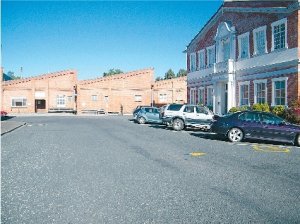The Otago mill’s ability to make “almost anything” in wool yarn means it is essential for many knitters and weavers making uniquely New Zealand garments and other products, says Wool Equities chairman Cliff Heath.
The new company will be known as Bruce Woollen Mill with Wool Equities owning 67%. The other shareholders are customers of Qualityarns.
The purchase was confirmed just before Easter and the new board met last week with a number of details to finalise.
The mill will be fully operational again in the next two to three weeks, with forward orders to crank up the operation, says Heath.
“There’s a large number of downstream processors dependent on that factory for their feed stock, so we are keeping this business going because it is a cornerstone of the New Zealand non-carpet wool and textiles industry.”
Some profitable businesses were at risk had the mill not kept going, he adds.
Although Qualityarns was not directly exporting, its yarn was finding its way overseas through second or third parties, especially in uniquely New Zealand products.
Heath says New Zealanders are also returning to New Zealand-made as part of a resurgence of wool as a textile. “There is a growing resistance to some imported product; people are prepared to pay a little more to get a degree of quality and something they know is NZ made.”
The mill’s product range includes handknitting yarns, fine worsted merino, possum merino, through to heavy textiles for coatings and blankets. It was capable of making carpet wool but that isn’t the consortium’s intention. Heath says it’s critical for farmers to understand every time a business in the New Zealand wool industry closes, there is one less buyer for their wool.
“It is important to keep the New Zealand textile industry going … it can lead to prototypes for something bigger such as Icebreaker or certain types of bedding.
“If we lose our entire New Zealand industry then we are committed to being just producers of wool material at the wharf – an industrial ingredient.”
Wool only becomes a product when it is knitted, woven or manufactured in some way, then sold, he points out.
“There’s been too great a disconnect between the farmer and the user of the wool who manufactures the product.”

















